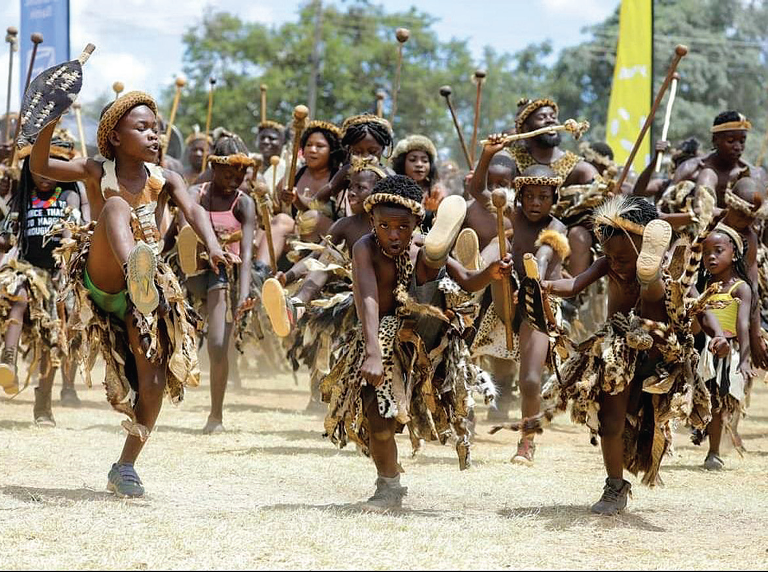Sakina Fred, 13, will sit the Primary School Leaving Certificate of Education examination next year at Kanjedza Primary School in Machinga District.
However, her school lacks classrooms, sanitation facilities and learning materials.
Learners go to class at Kanjedza Primary School in Machinga
“I understand some schools have desks for every learner, but I have never used one all my life,” says the Standard Seven girl.
Monday to Friday, she walks a long distance from her home in Intenje Village, Traditional Authority Liwonde, to get to school.
“During the rainy season, I get soaked and hardly concentrate on lessons,” she says.
According to headteacher Asima Chisambula, the rural school has 52 desks against 1 534 learners and six staff houses for 20 teachers.
“The desks are not even enough for the Standard Eight learners,” he says.
The Yao Paramount Chief Kawinga says the constraints prevent intelligent learners from excelling and force others to quit.
“It’s pathetic to see learners spending six years without desks, school blocks and learning materials. Government and non-governmental organisations should come to our rescue,” he says.
These gaps in the education system are rampant in all districts.
In Dedza, Kampini Primary School headteacher Lenato Chipwayira says: “We need two class blocks for children to learn in comfort.
”Besides, we need more desks and the existing ones need maintenance.”
These challenges slow the progress toward the global Sustainable Development Goal (SDG) four which promotes inclusive and equitable quality lifelong learning for all by 2030.
Similarly, the Malawi 2063 long-term development agenda calls for greater investment in primary education, including in science, technology and innovation.
Minister of Education Madalitso Kambauwa Wirima says the government is committed to solving the problem as quality education is pivotal to the country’s socio-economic development.
The Malawi Education Reform Programme (Merp) is constructing a classroom block and sanitation facilities at Kanjedza Primary School. The initiative seeks to improve learning environments for junior learners in public schools and strengthen education management.
“We need to utilise every avenue to enhance education standards in the country,” said the minister when she toured the school.
The programme has other windows to train teachers and school management structures, strengthen the utilisation of school improvement grants and enhance the capacity of auxiliary teachers.
Kambauwa urges all stakeholders to participate and track public spending in the construction of 10 900 classroom blocks and sanitation facilities nationwide
“Education has a transformative power, particularly among girls. It breaks the cycle of poverty and addresses problems of child marriages, teen pregnancies, gender-based violence and sexual abuse and exploitation,” she says.
Development Communications Trust (DCT) programme manager Bettie Chumbu backs calls for collaborative efforts.
She states: “Malawians should learn to demand social accountability on education issues.
“At DCT, we have the Kankha Project, funded by Unicef under the United Nations Joint Programme on Girls Education, which uses data for evidence-based advocacy. This is helping in enhancing the quality of education in Dedza, Kasungu, Mangochi and Salima.”
Chumbu said the social accountability efforts include a textbook tracking system credited with returning 483 243 books to Kawiya Primary School in Chikwawa.
The post Striving for quality education first appeared on Nation Online.
The post Striving for quality education appeared first on Nation Online.
 Moni Malawi
Moni Malawi 

